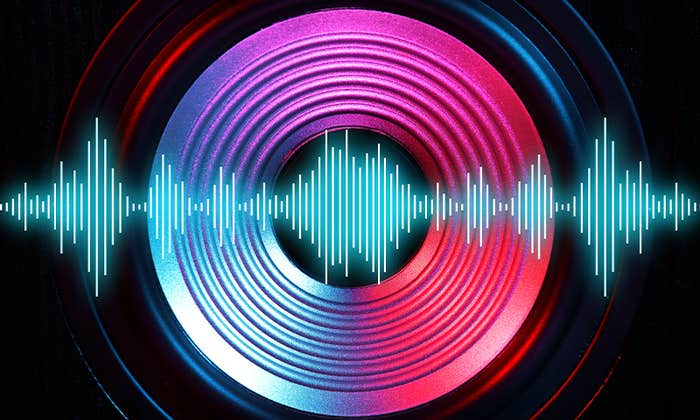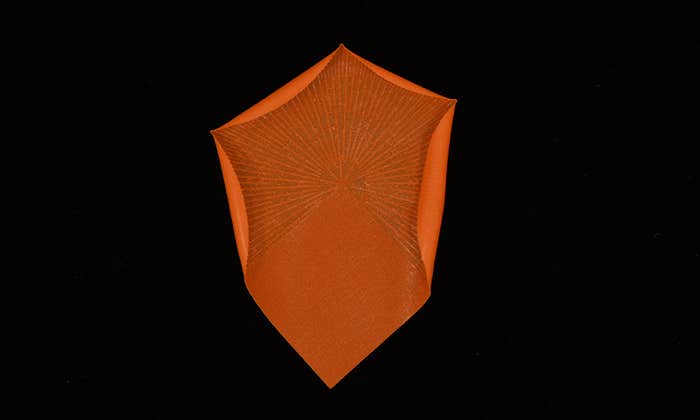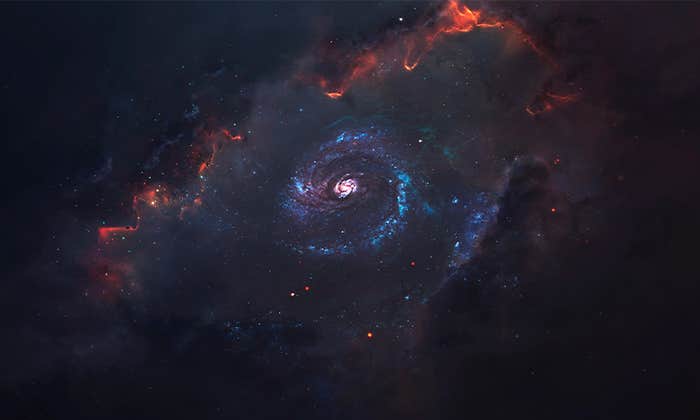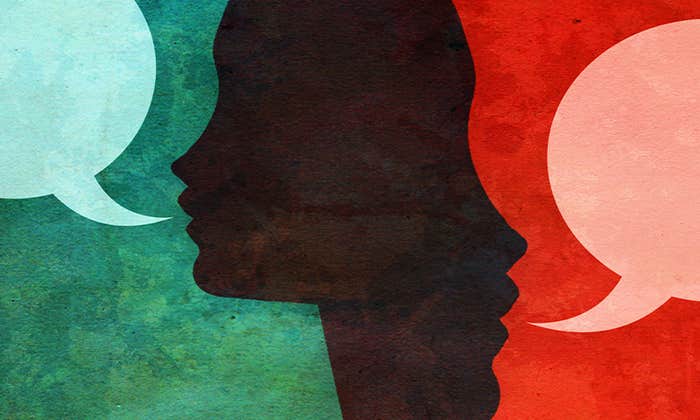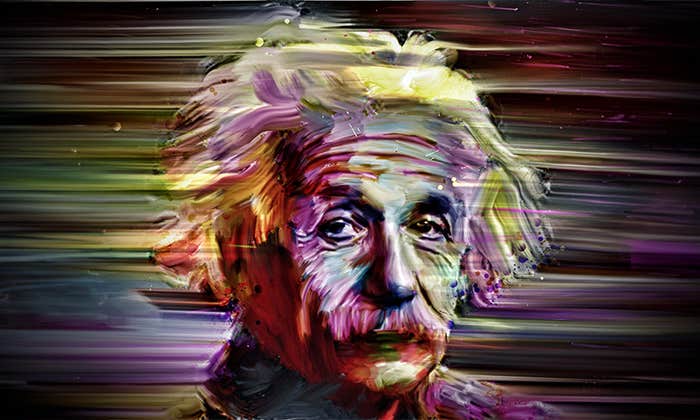The first thing we asked Michio Kaku when he stopped by Nautilus for an interview was what was a nice theoretical physicist like him doing studying the brain. Of course the outgoing Kaku, 67, a professor at City College of New York, and frequent cheerleader for science on TV and radio, had a colorful answer. He told us that one day as a child in Palo Alto, California, when the hometown of Stanford University was punctuated by apple orchards and alfalfa fields, he was struck by an obituary of Albert Einstein that mentioned the question that haunted the twilight of the great physicist’s life: how to unify the forces of nature into a “unified field theory.” Kaku, who in 2005 published a book on Einstein, and is a proponent of string theory in physics, has devoted his entire career to solving Einstein’s conundrum. But along the way, Kaku said, he has been fascinated by the other great mystery of nature: the origin of consciousness. In his new book, The Future of the Mind, Kaku has turned the physicist’s “rigorous” eye on the brain, charting its evolution, transformations, and mutations, arriving at futuristic scenarios of human brains melded with computers to amplify collective memory and intelligence. We found the book insightful and engaging and were struck by the confidence with which Kaku explains the nature of consciousness. He answered our questions with zest and insight—stirring, we might imagine, controversy among neuroscientists.
What’s a nice theoretical physicist like you doing studying the brain?
What is your “space-time theory of consciousness?”
Why is a sense of time a key to understanding consciousness?
You say we have a “CEO” in our brain. What exactly is that?
Your “CEO in the brain” seems to act with intent and purpose. But neurons just fire or don’t. You can’t say they have purpose, right?
Granted, consciousness arises out of the brain. But what is consciousness itself? What, for instance, is the sense of redness?
What is self-awareness?
Are we merely biological machines?
What’s the future of the human brain?
How will artificial intelligence change our view of humanity?
What’s a nice theoretical physicist like you doing studying the brain?
Well, first of all, in all of science, if you were to summarize two greatest mysteries, one would be the origin of the universe and one would be the origin of intelligence and consciousness. And as a physicist, I work in the first. I work in the theory of cosmology, of big bangs and multiverses. That’s my world, that’s my day job, that’s how I earn a living. However, I also realize that we physicists have been fascinated by consciousness. There are Nobel Prize winners who argue about the question of consciousness. Is there a cosmic consciousness? What does it mean to observe something? What does it mean to exist? So these are questions that we physicists have asked ourselves ever since Newton began to create laws of physics, and we began to understand that we too have to obey the laws of physics, and therefore we are part of the equation. And so there’s this huge gap that physicists have danced around for many, many decades and that is consciousness. So I decided—I said to myself, “Why not apply a physicist’s point of view to understand something as ephemeral as consciousness?” How do we physicists attack a problem? Well, first of all we create a model—a model of an electron, a proton, a planet in space. We begin to create the laws of motion for that planet and then understand how it interacts with the sun. How it goes around the sun, how it interacts with other planets. Then lastly we predict the future. We make a series of predictions for the future. So first we understand the position of the electron in space. Then we calculate the relationship of the electron to other electrons and protons. Third we run the videotape forward in time. That’s how we physicists work. So I said to myself, “Why not apply the same methodology to consciousness?” And then I began to realize that there are three levels of consciousness: the consciousness of space, that is, the consciousness of alligators and reptiles; the consciousness of relationship to others, that is, social animals, monkeys, animals which have a social hierarchy and emotions; and third, we run the videotape forward, we plan, strategize, scheme about the future. So I began to realize that consciousness itself falls into the same paradigm when we analyze physics and consciousness together.
What is your “space-time theory of consciousness?”
Well, I’m a physicist and we like to categorize things numerically. We like to rank things, to find the inter-relationship between things, and then to extrapolate into the future. That’s what we physicists, that’s how we approach a problem. But when it comes to consciousness, realize that there are over 20,000 papers written on consciousness. Never have so many people spent so much time to produce so little. So I wanted to create a definition of consciousness and then to rank consciousness. So I think that consciousness is the set of feedback loops necessary to create a model of our place in space with relationship to others and relationship to time. So take a look at animals for example. I would say that reptiles are conscious, but they have a limited consciousness in the sense they understand their position in space with regard to their prey, with regard to where they live, and that is basically the back of our brain. The back of our brain is the oldest part of the brain; it is the reptilian brain, the space brain. Then in the middle part of the brain is the emotional brain, the brain that understands our relationship to other members of our species. Etiquette, politeness, social hierarchy—all these things are encoded in the emotional brain, the monkey brain at the center of the brain. Then we have the highest level of consciousness, which separates us from the animal kingdom. You see animals really understand space, in fact better than us. Hawks, for example, have eyesight much better than our eyesight. We also have an emotional brain just like the monkeys and social animals, but we understand time in a way that animals don’t. We understand tomorrow. Now you can train your dog or a cat to perform many tricks, but try to explain the concept of tomorrow to your cat or a dog. Now what about hibernation? Animals hibernate, right? But that’s because it’s instinctual. It gets colder, instinct tells them to slow down and they eventually fall asleep and hibernate. We, on the other hand, we have to pack our bags, we have to winterize our home, we have to do all sorts of things to prepare for wintertime. And so we understand time in a way that animals don’t.
Why is a sense of time a key to understanding consciousness?
Well, we’re building robots now right? And the question is how conscious are robots? Well, as you can see, they are at a level one. They have the intelligence of a cockroach, the intelligence of an insect, the intelligence of a reptile. They don’t have emotions. They can’t laugh and they can’t understand who you are. They don’t understand who they are. There’s no understanding of a social pecking order. And, well, they understand time to a degree but only in one parameter. They can simulate the future only in one direction. We simulate the future in all dimensions—dimensions of emotions, dimensions of space and time. So we see that robots are basically at level one. And then one day, we may meet aliens from out of space and then the question is, well, if they’re smarter than us, what does that mean to be smarter than us? Well, to me, it means being able to daydream, strategize, plan much better than us. They will be several steps ahead of us if they are more intelligent than us. They could, quote, outwit us because they see the future. So that’s where we differ from the animals. We see the future. We plan, scheme, strategize. We can’t help it. And some people say, “Well bah humbug! I don’t believe this theory, there’s got to be exceptions, things that are outside the theory of consciousness like humor.” What could be more ephemeral than a joke? But think about a joke for a moment. Why is a joke funny? A joke is funny because you hear the joke, and then you mentally complete the punch line by yourself, and then when the punch line is different from what you anticipated, it is, quote, funny, okay? For example one of Roosevelt’s daughters was the gossip of the White House and she was famous for saying, “If you have nothing good to say about somebody, then please sit next to me.” Now why is that quote funny? It’s funny because you complete the sentence yourself: if you have nothing good to say about somebody, then don’t say anything at all. Your parents taught you that. But then the twist is “well come sit next to me.” And that’s why it’s, quote, funny. Or WC Fields was asked the question, “Are you in favor of social activities for youth? Like, are you in favor of clubs for youth?” And he said, “Well am I in favor of clubs for youth? Yes, but only if kindness fails.” That’s funny because we think clubs are social gatherings, but for WC Fields he twists the punch line and says, no a club is for hitting people. And that’s why that quote is funny—because we cannot help it. We mentally complete the future.
You say we have a “CEO” in our brain. What exactly is that?
Well, how do we differ from the animals? If you put, for example, a mouse between pain and pleasure, between a shock and food, or between two pieces of food, I’m sorry, it will actually, like the proverbial donkey, get confused. It’ll go back and forth, back and forth because it cannot evaluate. It cannot do the ultimate evaluation of something. It lacks a CEO to make the final decision. We have the CEO. It’s in the frontal part of the brain and we can actually locate where our sense of awareness is. You put the brain in an MRI scan, you ask the person to imagine yourself, and bingo! Right there, right behind your forehead it lights up. That is where you have your sense of self. And then when you have to make hard decisions between two things, animals have a hard time doing that because they’re being hit with all these different kinds of stimuli. It’s a hard decision for them. We, on the other hand, again that part lights up and that is, quote, the CEO that finally makes the final decision in evaluating all the other consequences. And how did we do this? By simulating the future. If you get candy and put a candy in front of a kid the kid says, “Well if I grab that candy will my mother be happy? Will my mother be sad? I mean, how will I pay for it?” That’s what goes on in your mind, you complete the future and that’s the part of the brain that lights up. So that’s how the CEO makes the decision between two things while animals do it by instinct, or they just get confused.
Your “CEO in the brain” seems to act with intent and purpose. But neurons just fire or don’t. You can’t say they have purpose, right?
There is a purpose behind our consciousness, and that is basically survival and also reproduction. So if you think about your daydreaming, what do you daydream about? Well you daydream about survival first of all. Where’s my next food or my job? I mean, how do I impress people to advance in my career? And so on and so forth. And then you think, “Hey it’s Friday night. You know, I’m lonely. I want to go out and, you know, dance at some dance hall and have some fun.” So if you think about it, there is a purpose, and that’s why we have emotions. Emotions have a definite purpose. Evolution gave us emotions because they’re good for us. For example, the concept of like. How do you like something? Well if you think about it, most things are actually dangerous. Of all the things that you see around, they’re either neutral or actually dangerous. There’s only a small sliver of things which are good for you. And emotions say, “I like this because these things are good for you.” Jealousy is very important, for example, as an emotion because it helps to ensure your reproduction and the fact that your genes will carry out into the next generation. Anger. All these emotions that we have, that are instinctual, are basically hardwired into us because we have to make split-second decisions, which would take many, many minutes for the prefrontal cortex to rationally evaluate. We don’t have time for that. If you see a tiger, you feel fear. That’s because it’s dangerous and you have to run away. And then we have the other question that is sometimes asked: Can a robot feel redness? Or how do we know that we are conscious? Because we can feel a sunset or we feel the enormous splendor of nature but robots can’t, right? Well I don’t believe in that, because back in the old days people used to ask the question, “What is life?” I still remember, as a kid, all these essays and articles written about “What is life?” That question has pretty much disappeared. Nobody asks that question anymore because we now know—because of biotechnology, the degradations—it’s a very complicated question. It’s not just living and non-living. We have all sorts of viruses and all sorts of things in between. So we now realize that the question “What is life?” has pretty much disappeared. So I think the question of “What is consciousness and can consciousness understand redness in a machine?” will also gradually just disappear. One day we will have a machine that understands redness much better than us. It’ll be able to understand the electromagnetic spectrum, the poetry, be able to analyze the law of redness, history of redness, much better than any human. And the robot will say, “Can humans understand redness? I don’t think so.” One day, robots will have so much access to the Internet—so much access to sensors—that they will understand redness in a way that most humans cannot and robots will conclude that, “My god, humans cannot understand redness.”
Granted, consciousness arises out of the brain. But what is consciousness itself? What, for instance, is the sense of redness?
Well, if you take a look at the circuitry of the brain, you realize that the sensors of the brain are limited. Sometimes they can be mis-wired; that’s called synesthesia. And you realize that we have certain parts of the brain that register certain kinds of senses, including redness. Now then the question is, can blind people understand redness, right? And the answer is no, but they have the receptors—they have the apparatus there that can allow them to understand redness, but they don’t. So ultimately, I think you can create a robot—a robot, which will have the same sensors, the same abilities—to understand redness much better than a human and be able to recite poetry, be able to have eloquent statements about the essence of redness much better than any human poet can. Then the question is, well, does the robot understand redness? At that point the question becomes irrelevant, because the robot can talk, feel, express the concept of redness many, many, many times better than any human. But what’s going on in the mind? Well, a bunch of circuits or a bunch of neurons firing and so on and so forth. And that will be redness.
What is self-awareness?
Well, again there are thousands of papers written about self-awareness and I have to make a definition in one sentence. My definition is very simple: Self-awareness is when you put yourself in that model. So this model of space, your relationship to other humans, and then relationship to time, when you put yourself in that model that is self-awareness. And then you ask the question, well, are robots self-aware? Well the answer is obviously no. When the robot Watson beat two humans on the game show Jeopardy on national TV, many people thought, “Uh-oh the robots are coming; they’re going to put us in zoos. They’re going to throw peanuts at us and make us dance behind bars just like we do that with bears.” Wrong. Watson has no sense of self-awareness. You cannot go to Watson and slap it on his back and say, “Good boy, good boy, you just beat two humans on Jeopardy.” Look, Watson doesn’t even know that it is a computer. Watson doesn’t know what a human is. Watson doesn’t even know that it won this prize of beating two humans on a game show because he does not have a model of itself as a machine, a model of humans as being made out of flesh and blood, and he doesn’t have the three categories of intelligence other than understanding space and being able to navigate facts on the internet. So again, self-awareness I have to define it. Self-awareness is when you put yourself in this model of space, time, and relationship to others.
Are we merely biological machines?
Well, we are definitely biological machines. Okay, there’s no question about that. The question is, what does that mean? What does that mean for people’s feelings about the universe [and] sense of who they are? Are humans special in that sense from animals? Well, I’ve looked at a continuum. If you take a look at our own evolution and you were to believe, for example, that only humans are conscious (which is the dominant position of most psychologists and most people in the field), that humans really are different, we are conscious, animals or not. That is the dominant position in the entire field. But if you take our evolutionary history, at what point did we suddenly become conscious? There’s a continuum of our ancestors going back millions, in fact, billions of years and then you say, “Well at what point did we suddenly become conscious?” and then you begin to realize that, hey this is a stupid question. Consciousness itself probably has a continuum. It has stages as I mentioned, but consciousness probably has a continuum and so, in that sense, we are linked to the animal kingdom. Now are we special? Again, it depends on how you define special—how you define soul. What I’m saying is, if you give me a criterion, that is, are we x, y, z? Then what I say is, “Okay how do you measure it?” Give me an experiment that I can put a human in a box by which I can measure this criterion that you give me. So are we biological machines? The answer is yes, but what does that mean? Does a machine have a soul? Does a machine have something more? Well, define more. Define soul. Define essence. Give me a definition and then I will give you an experiment by which we can differentiate yes or no. That’s how we physicists think.
What’s the future of the human brain?
Well, first of all I think that brain-machine interface is going to explode in terms of developments, financing, and breakthroughs. The Pentagon is putting tens of millions of dollars into the revolutionary prosthetics program because think of the thousands of veterans of Iraq and Afghanistan who had injured spinal cords, no arms, no legs. We can connect the brain directly now to a mechanical arm [or] mechanical leg. At the next international soccer games, the person who starts the Brazilian World Cup Games will be partially paralyzed, wearing an exoskeleton. In fact, my colleague Stephen Hawking, the noted cosmologist, he has lost control of his fingers now, so we have connected his brain to a computer. The next time you see him on television, look at his right frame. In his right frame there’s an antenna there with a chip in it that connects him to a laptop computer. And we now have, in this sense, telepathy. We’re now able to actually take human thoughts and carry out movements of objects in the material world. People who are totally paralyzed can now read email, write email, surf the web, do crossword puzzles, operate their wheelchair, operate household appliances and they are totally paralyzed—they are vegetables. We’ve done this with animals. We’ve done this with humans. And in the future, because you ask about the future, we will also have artificial memories as well. Last year for the first time in world history, we recorded a memory and implanted a memory into the brain. At Wake Force University and also in Los Angeles, you take a mouse, teach the mouse how to sip water from a flask, and then look at the hippocampus, record the impulses ricocheting across the hippocampus (which is the gateway to memory), record it, and then later, when the mouse forgets how to do this, you re-insert the memory back into the hippocampus and bingo! The mouse learns on the first try. Next, will be primates. For example, a primate eating a banana or learning how to manipulate a certain kind of toy. That memory can be recorded and then re-inserted into the brain. And the short-term goal is to create a brain pacemaker. A brain pacemaker whereby people with Alzheimer’s could just simply push a button and they will know where they live, they will know who they are, they will know who their kids are, and beyond that, even more complex memories. Maybe we’ll be able to record a memory of a vacation you never had and be able to upload that vacation. Or you’re a college student learning calculus by simply pushing a button. Or if you’re a worker that’s been laid off because of technology, why not upgrade your skills? These are all possibilities that are real because now the politicians are getting interested in this, and they’re putting big bucks to the tune of a billion dollars into the brain initiative.
How will artificial intelligence change our view of humanity?
Well, we realize that democracy is perhaps the worst form of government except for all the others that have been tried, said Winston Churchill, and people will democratically vote. They will democratically decide how the human race will evolve. For example: designer children. We cannot do that today, but it’s coming. The day will come when parents will decide what genes they want to have propagated into their kids. Already, for example, if you’re Jewish in Brooklyn and you have the potential of Tay-Sachs, a horrible genetic disease, you can be tested and the embryos can be tested and you can abort them. So you have already a form of genetic engineering taking place right now, today. We can actually genetically engineer certain disease genes out of your gene pool. That’s today. In the future we may be able to deliberately do this. And so we begin to realize that we may have the power of controlling our genetic destiny. And the same thing with intelligence: If we have the ability to upload memories, perhaps we’ll have the ability to have super memories—to have a library of memories so that we can learn calculus and learn all the different subjects that we flunked in college—and have them inserted into our mind. And so as the decades go by, we may have these superhuman abilities. And with exoskeletons we may be able to live on Mars and live on other planets with skeletons that allow us to have superpowers and the ability to breath in different atmospheres and things like this. My point is that in a democracy people will decide for themselves. We cannot decide. We cannot say that that’s immoral, that’s moral. People in the future will democratically decide how they want their genetic heritage and how they want their physical heritage to be propagated.






















